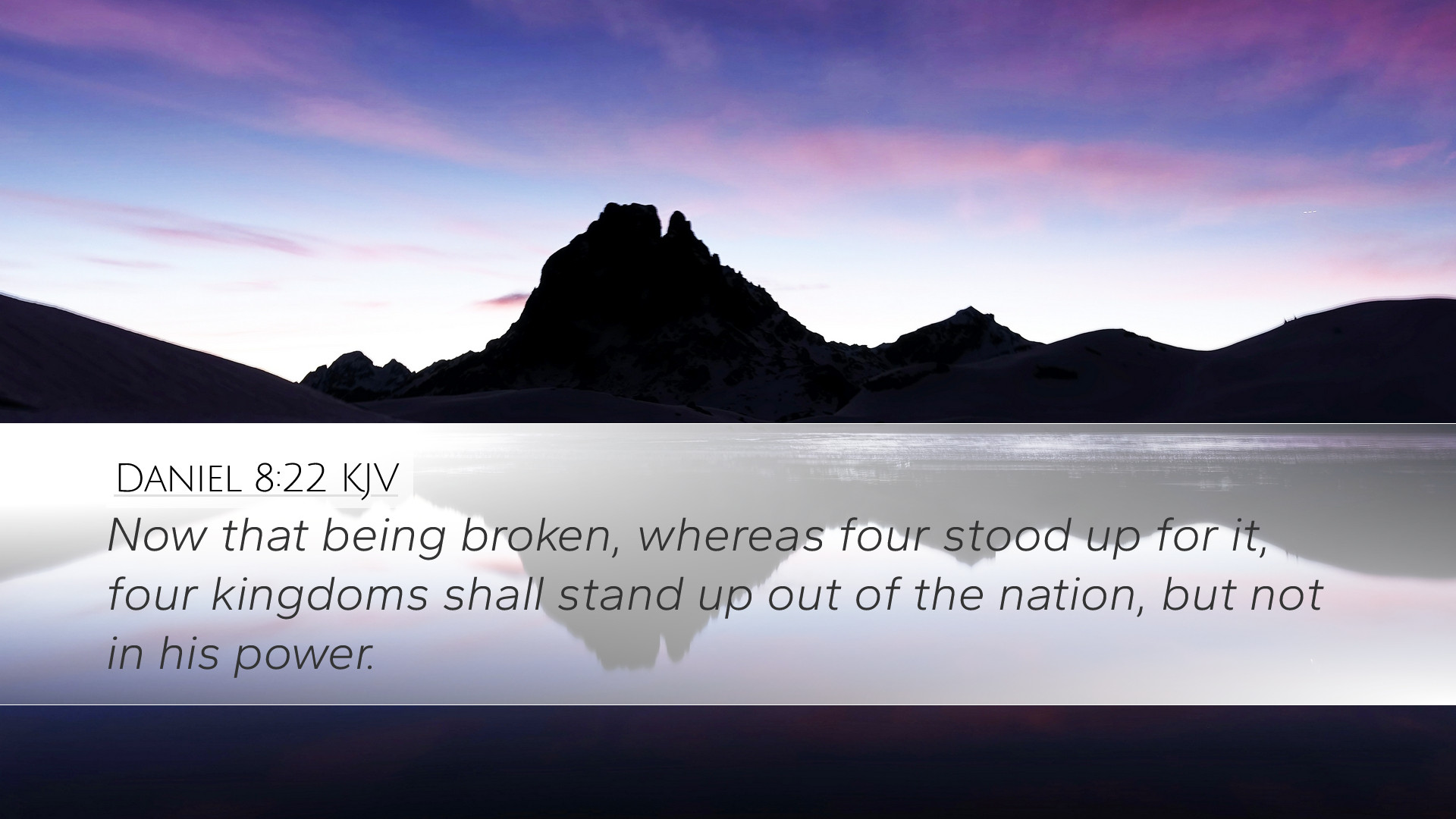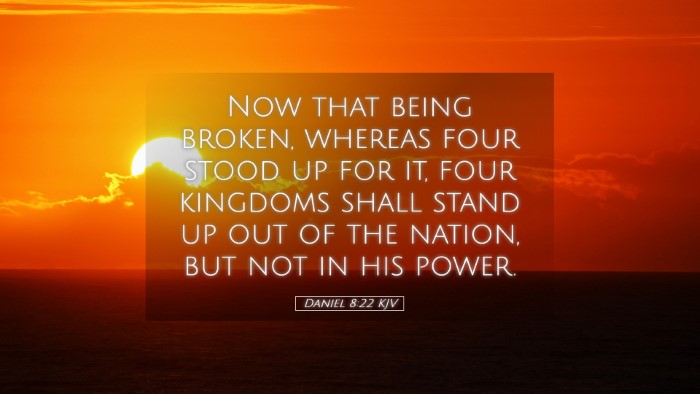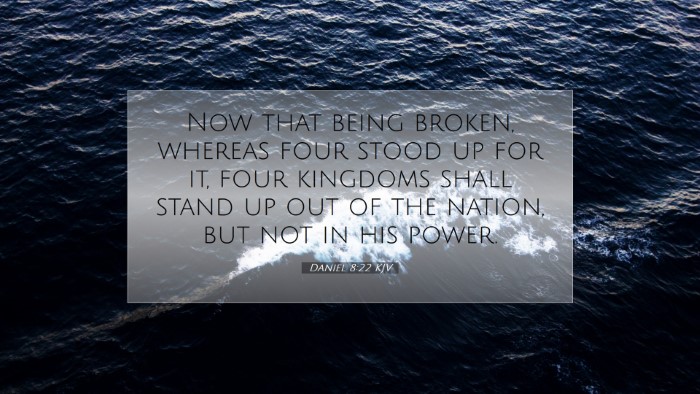Commentary on Daniel 8:22
Daniel 8:22 states, "And the ram that thou sawest having two horns are the kings of Media and Persia." This verse occurs in the midst of a vision that the prophet Daniel receives regarding a ram and a goat, which symbolize different empires.
The verse highlights the significance of the ram with two horns, which represents the dual monarchy of Media and Persia. This symbolism is further elucidated by various public domain commentaries, which provide deep insights into the historical and theological implications of this passage.
Interpretation and Historical Context
According to Matthew Henry, the two horns symbolize the two kingdoms that came together to form a significant power in the ancient Near East. Media represents the northern part, while Persia represents the southern part. This unification is key, as it highlights the strength that arises from cooperation between nations.
Albert Barnes adds that the horns of the ram are "the kings of Media and Persia," denoting their power and authority. He elaborates on the historical context, identifying the rise of these empires as crucial moments in biblical history, which parallel with Daniel's prophetic visions. The duality of the horns signifies the strength of the Medo-Persian Empire, which was dominant during Daniel’s time.
Theological Significance
Adam Clarke discusses the theological ramifications of the verse, suggesting that the vision of the ram serves as a reminder of God's sovereignty over the nations. The rise and fall of empires are not outside of God's control; rather, they are orchestrated according to His divine plan. This perspective invites readers to reflect on the larger narrative of God's relationship with humanity and His providence throughout history.
Lessons for Current Context
The implications of Daniel 8:22 extend beyond its immediate historical context. For pastors and theologians today, the verse offers rich lessons about the nature of political power and the divine orchestration behind world events. Just as the ram symbolizes earthly kingdoms, we are reminded of the ultimate kingdom of God that transcends human authority.
-
Understanding Power: Every earthly power is subject to God's ultimate authority. The rise of Media and Persia serves as a metaphor for understanding the current geopolitical climate.
-
Trust in Divine Sovereignty: Believers can take comfort in the knowledge that no matter the state of human affairs, God is in control.
Conclusion
In summary, Daniel 8:22 offers profound insights into the nature of prophecy, the interplay of historical powers, and God's providential care over His creation. The commentaries by Matthew Henry, Albert Barnes, and Adam Clarke collectively enrich our understanding of this verse. For students and scholars of the Bible, this passage serves as a critical reminder of the assurance found in God’s sovereign rule over history.


